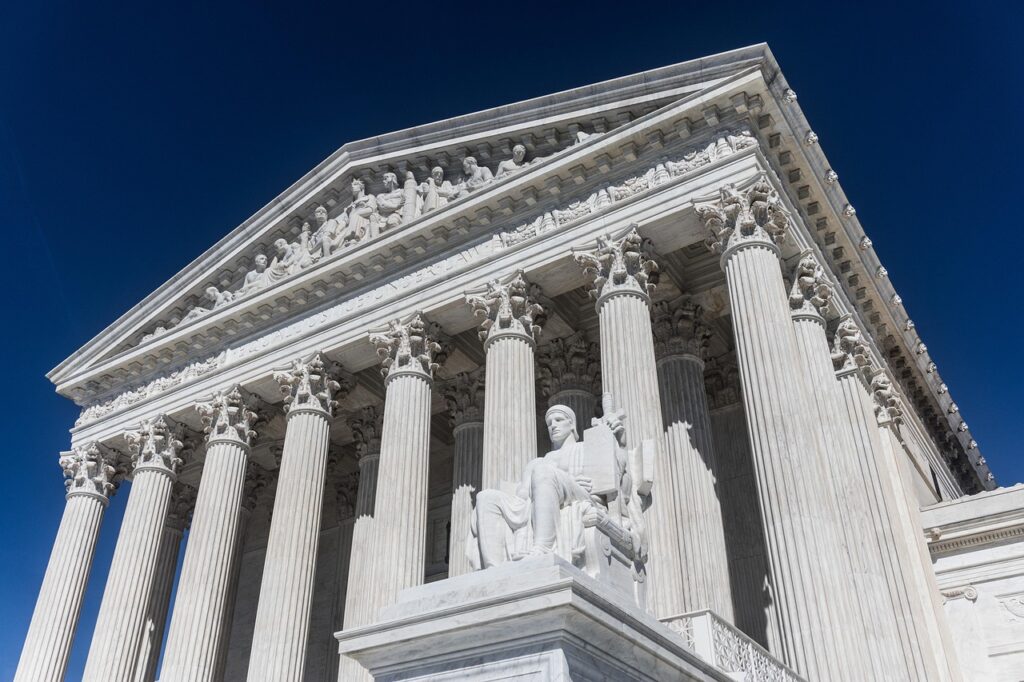
(Rightallegiance.com) – The U.S. Supreme Court has issued a landmark decision overturning key provisions of the Voting Rights Act of 1965, significantly altering the landscape of voting rights protections in the United States.
In a 5-4 ruling, the Court declared that Section 4(b) of the Act, which established the formula for determining which jurisdictions required federal preclearance before changing voting laws, is unconstitutional. This decision effectively removes the requirement for certain states and localities with histories of racial discrimination in voting to obtain federal approval before implementing new voting laws.
The majority opinion, authored by Justice Roberts, argued that the coverage formula was outdated and no longer reflective of current conditions. Roberts stated, “The conditions that originally justified the preclearance requirement no longer characterize voting in the covered jurisdictions.” He emphasized that the federal government should not be in the business of overseeing elections in states that have made significant progress.
However, the dissenting justices expressed concern that the ruling undermines the protections against racial discrimination in voting. Justice Ginsburg, in her dissent, wrote, “Throwing out preclearance when it has worked and is continuing to work to stop discriminatory changes is like throwing away your umbrella in a rainstorm because you are not getting wet.”
The decision has immediate implications for several states, including Texas, Georgia, and North Carolina, which had been subject to the preclearance requirement. These states can now implement changes to voting laws without federal oversight, raising concerns among civil rights groups about potential voter suppression tactics.
Civil rights organizations have vowed to continue their efforts to protect voting rights. The NAACP Legal Defense Fund issued a statement saying, “While this is a setback, we will not rest until every American has an equal opportunity to vote.”
Legal experts anticipate that this ruling will lead to an increase in state-level voting restrictions and could prompt Congress to consider new legislation to address the gaps left by the Court’s decision. The John Lewis Voting Rights Advancement Act, which aims to restore and strengthen parts of the Voting Rights Act, is expected to gain renewed attention in the coming months.
As the nation grapples with the implications of this decision, the future of voting rights protections remains uncertain. Advocates for voting rights continue to push for legislative action to ensure that all Americans have equal access to the ballot box.
This ruling marks a significant moment in the ongoing debate over voting rights in America, highlighting the tension between state sovereignty and the need to protect citizens from racial discrimination in the electoral process.
The Supreme Court’s decision underscores the importance of vigilant oversight and legislative action to safeguard the fundamental right to vote for all Americans.